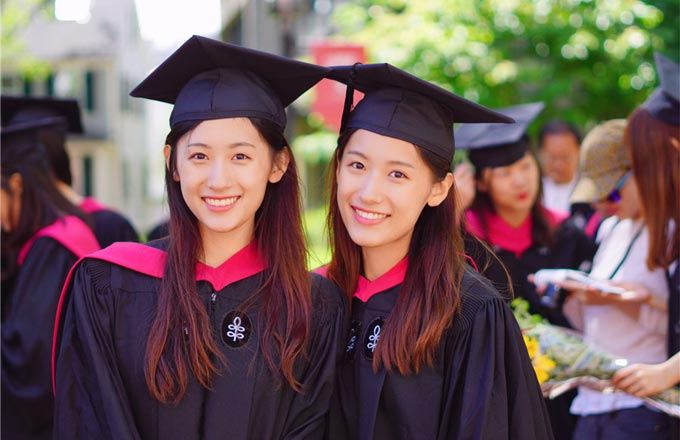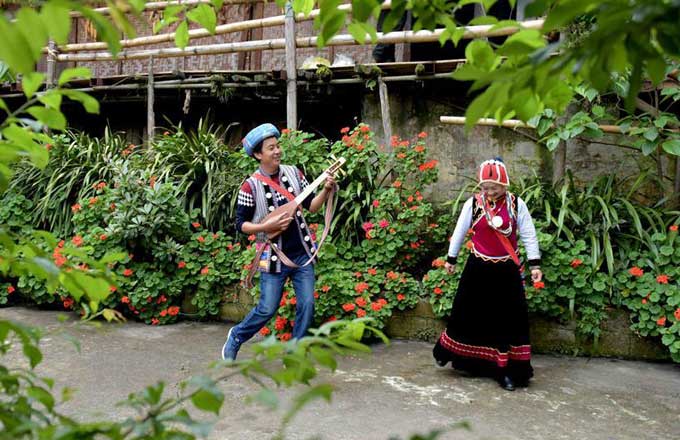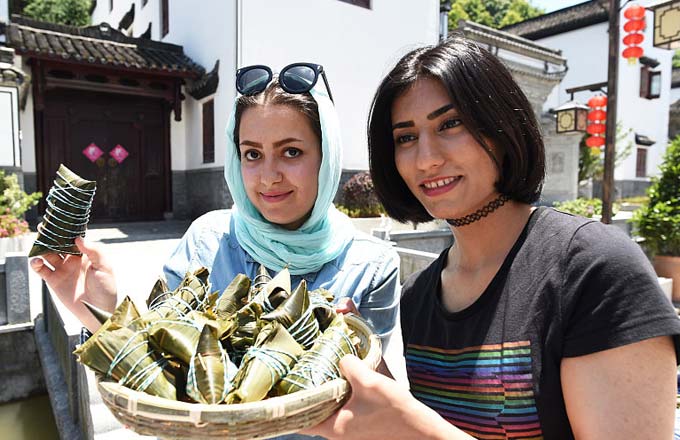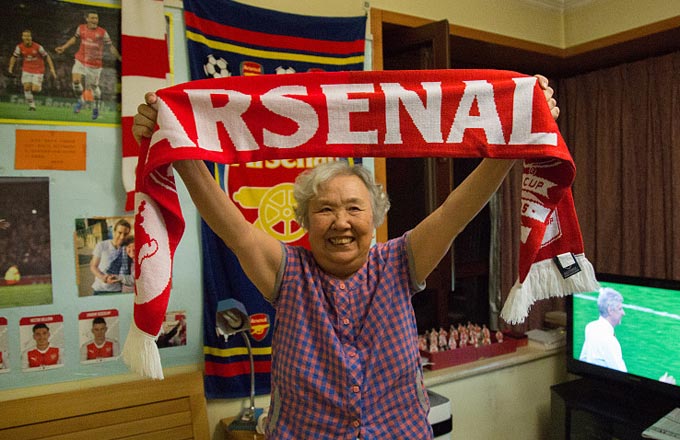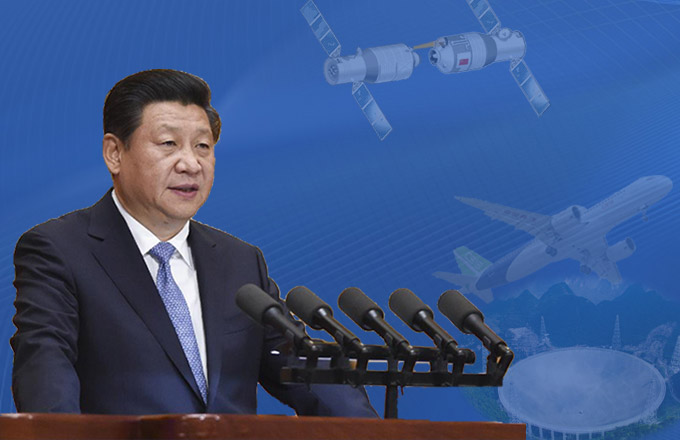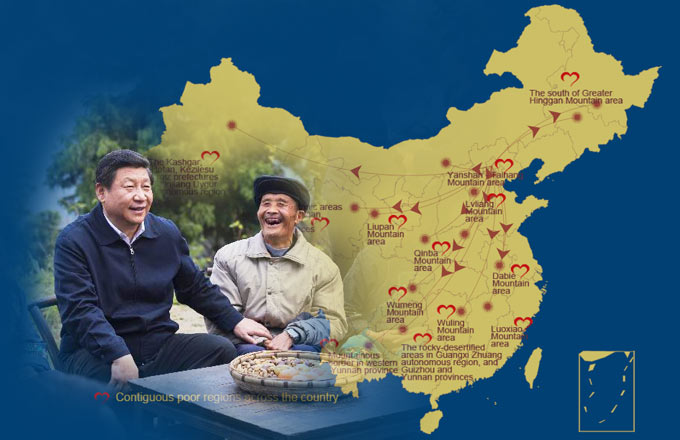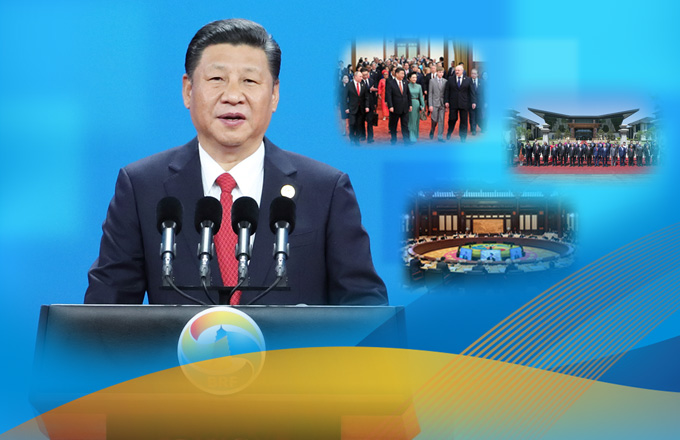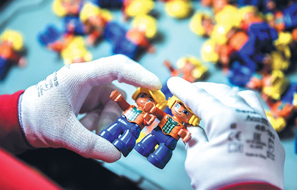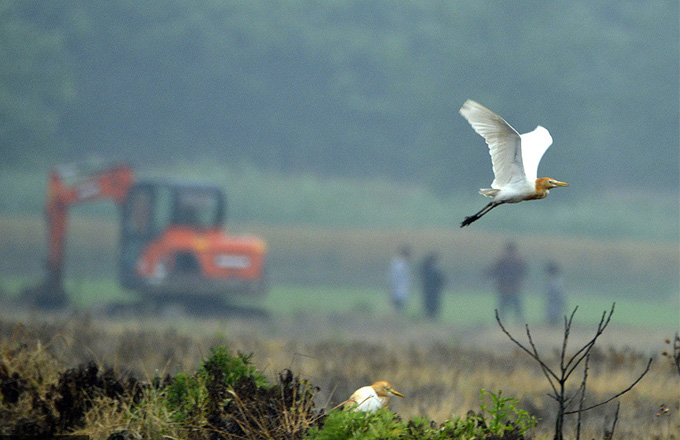Dad's app to help bereaved parents
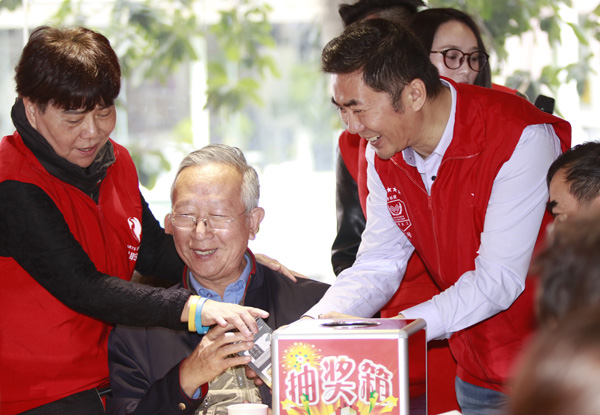 |
|
Li Gan, developer of the Love Hula Hoop app (third from left), helps hand out gifts in January to bereaved parents in Shenzhen, Guangdong province. [Provided to China Daily] |
A father who lost his only child almost a decade ago has developed a smartphone app that links bereaved parents with volunteers offering emotional support or help with everyday tasks.
Li Gan started working on Love Hula Hoop last year and said the app should be available to download on Apple and Android devices as early as October.
The 49-year-old customs officer lost his 4-month-old son in 2008 to an acute illness that doctors were unable to diagnose. Since then, he has offered support to other bereaved parents, setting up an NGO and hotlines, and organizing home visits and get-togethers. His efforts are mainly aimed at helping parents who have lost their only child.
"Although the meetings helped ease the pressure for parents, they still suffered due to spending most of their time alone," said Li, who lives in Shenzhen, Guangdong province. "The app will make the care offered by volunteers go further, so that people get the help they need when they are in real need."
Most volunteers with the NGO have a full-time job and are unavailable to be on call 24/7 for a chat or simply to change a broken lightbulb, he said.
So, much like a ride-hailing app, users will be able to send a request on Love Hula Hoop and the nearest available volunteer will respond.
The app, which is being designed by a local technology company, has cost about 1 million yuan ($145,000), financed with Li's own money and donations from the public.
"This is like I'm fostering new 'children' to look after us," he said. "I no longer have my son by my side, but I can still help myself and others to have a better life."
Lu Xiaoyu, 66, lost her 19-year-old son to leukemia in 2000 and since then has gotten a divorce. She said she likes the idea of the app.
"It's important. It's easier to make a request using an app than seeking help from someone in real life," she said. "I'm physically OK now, but I'm afraid for when I get older. I might die alone in the apartment."
Bereaved parents like Lu are susceptible to breaking down in the face of even the most trivial of problems, according to Li. "They often blame the one-child policy, which was in place for about 40 years, for their suffering and sometimes harbor social hatred, which in the end only hurts them," he said.
In 2016, China introduced a new policy allowing all couples to have a second child.
As a city of immigrants, Shenzhen has never lacked volunteers willing to help others who may also be far from home, he said. "I have been able to rally more than 1,000 volunteers in just two hours via an internet site for a charity activity."
As part of a partnership with the city government, volunteer service hours spent using the app will be recorded and linked to an individual social credit system and other social programs like applications for a hukou, or residence permit. People accrue benefits as they volunteer.
"That encourages volunteers and helps sustain quality care and support over a long period of time," he said.
There are roughly 2,000 households with bereaved parents left childless in Shenzhen, Li said. "Many of them, like me, left their hometowns for the city and have no other family members here."
A caring and responsive society helps parents feel loved, which helps them develop a more positive mindset for later in life, Li said.
Also, as they get older, "actual needs in daily life arise, like changing a bulb and buying groceries", he said. The app can turn neighbors into volunteer helpers when needs arise.
The city government has passed measures to help such bereaved parents, particularly in the context of family planning policies in the past 40 years.
Supporting measures for parents who have lost their only child include a monthly living allowance of 1,000 yuan, additional health insurance, and easier access to medical care.
"But equally important, handy access to social support and service providers has to be secured as well," he said.
Lu Xiaoyu agreed. "Money is important but that alone cannot provide a sense of security," she said.
shanjuan@chinadaily.com.cn




